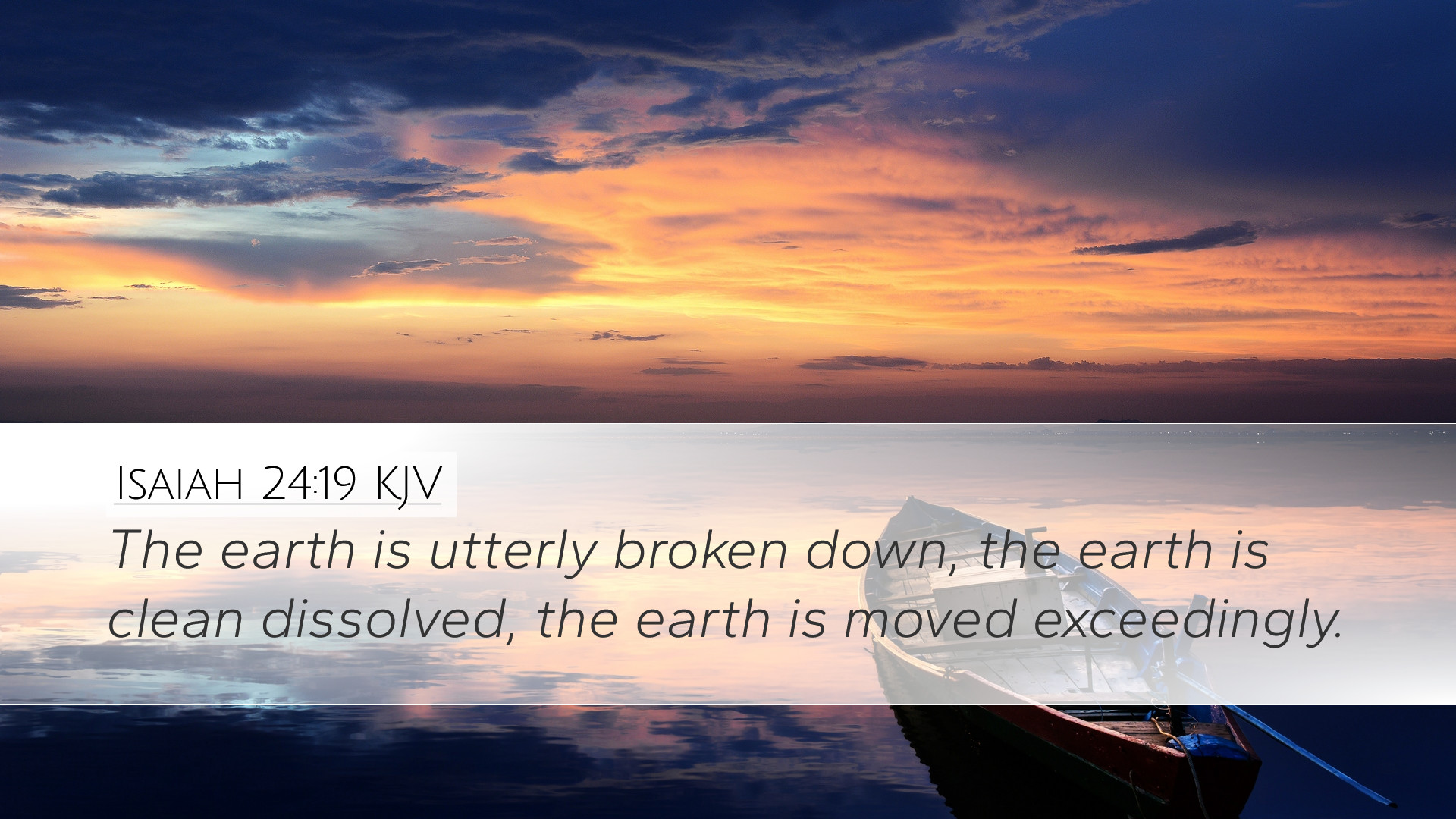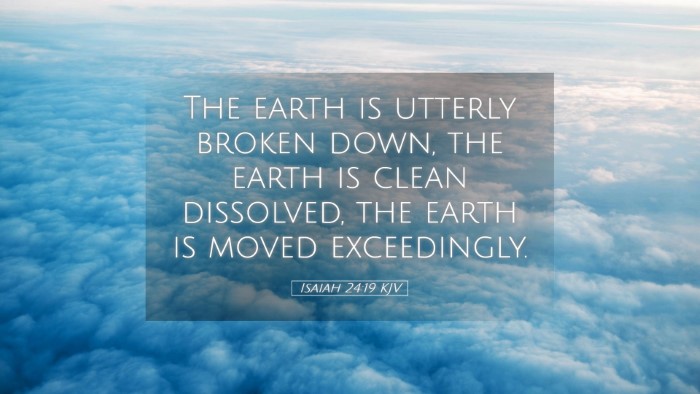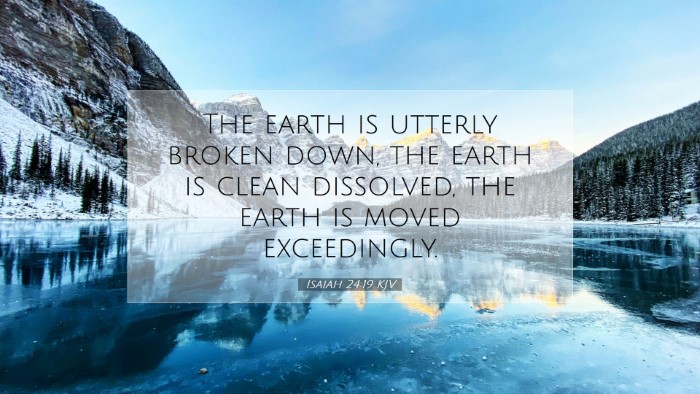Commentary on Isaiah 24:19
Isaiah 24:19 states: "The earth is utterly broken down, the earth is clean dissolved, the earth is moved exceedingly." This verse serves as a pivotal point in the larger context of Isaiah’s prophecy concerning the judgment of the world, which underscores themes of divine justice and the ultimate sovereignty of God over all creation.
Contextual Overview
To fully appreciate the weight of Isaiah 24:19, one must consider the surrounding passages. Isaiah 24 speaks of a time of great distress and upheaval on the earth. This chapter details God's judgment on the nations, showcasing His power and the severe consequences of human sinfulness.
Thematic Insights
- Divine Judgment: The verse exemplifies the consequences of sin, highlighting that God will not allow evil to go unpunished. Matthew Henry emphasizes that God’s judgments bring a comprehensive destruction to the entire earth.
- Cosmic Disorder: The phrase “the earth is utterly broken down” suggests a disintegration of natural order. Adam Clarke interprets this to reflect both moral and physical chaos resulting from humanity's rebellion against God.
- Transformation and Renewal: While the destruction is evident, there is an undercurrent of hope for restoration. Albert Barnes points out that God’s intent through judgment is often to purify and ultimately renew the world.
Verse Breakdown
The verse can be dissected for deeper understanding, where each phrase unveils significant theological meanings:
- "The earth is utterly broken down": Indicates total devastation. Henry suggests that this destruction is not merely physical but also spiritual, affecting the moral fabric of society.
- "The earth is clean dissolved": Conveys a sense of removal and elimination. Clarke remarks that this reflects God's power to reverse creation if humanity persists in rebellion against Him.
- "The earth is moved exceedingly": This denotes instability, implying that God's judgment shakes the very foundations of the earth. Barnes notes that this movement can represent both literal geological upheaval and metaphorical instability within nations.
Theological Implications
This verse carries significant implications for theology:
- The Authority of God: The utter breakdown of the earth serves as a reminder of God's ultimate authority. No power or nation can withstand His will, reinforcing the notion that God rules over all.
- Hope amid Judgment: Even in destruction, there lies a promise of restoration. Many public domain commentators stress that God’s judgments are not His last word, but rather a step towards redemption.
Pastoral Applications
For pastors, Isaiah 24:19 carries weighty implications pertaining to sermon preparation:
- Encouragement for Repentance: It serves as a call to the church and its members to repent and seek God’s mercy before such judgments manifest.
- Hope in Adversity: When discussing difficult times, pastors can remind their congregations of the temporary nature of earthly suffering and the ultimate restoration promised by God.
- Engagement with Society: This passage can inspire engagement with social issues, urging believers to address sinfulness within both themselves and the wider community.
Conclusion
Isaiah 24:19 is a profound declaration of God’s judgment, but also encapsulates themes of hope and renewal. Through careful study and reflection on this verse, scholars and theologians can draw parallels to contemporary issues and the overarching narrative of redemption throughout Scripture.


